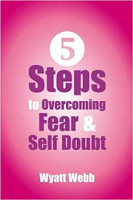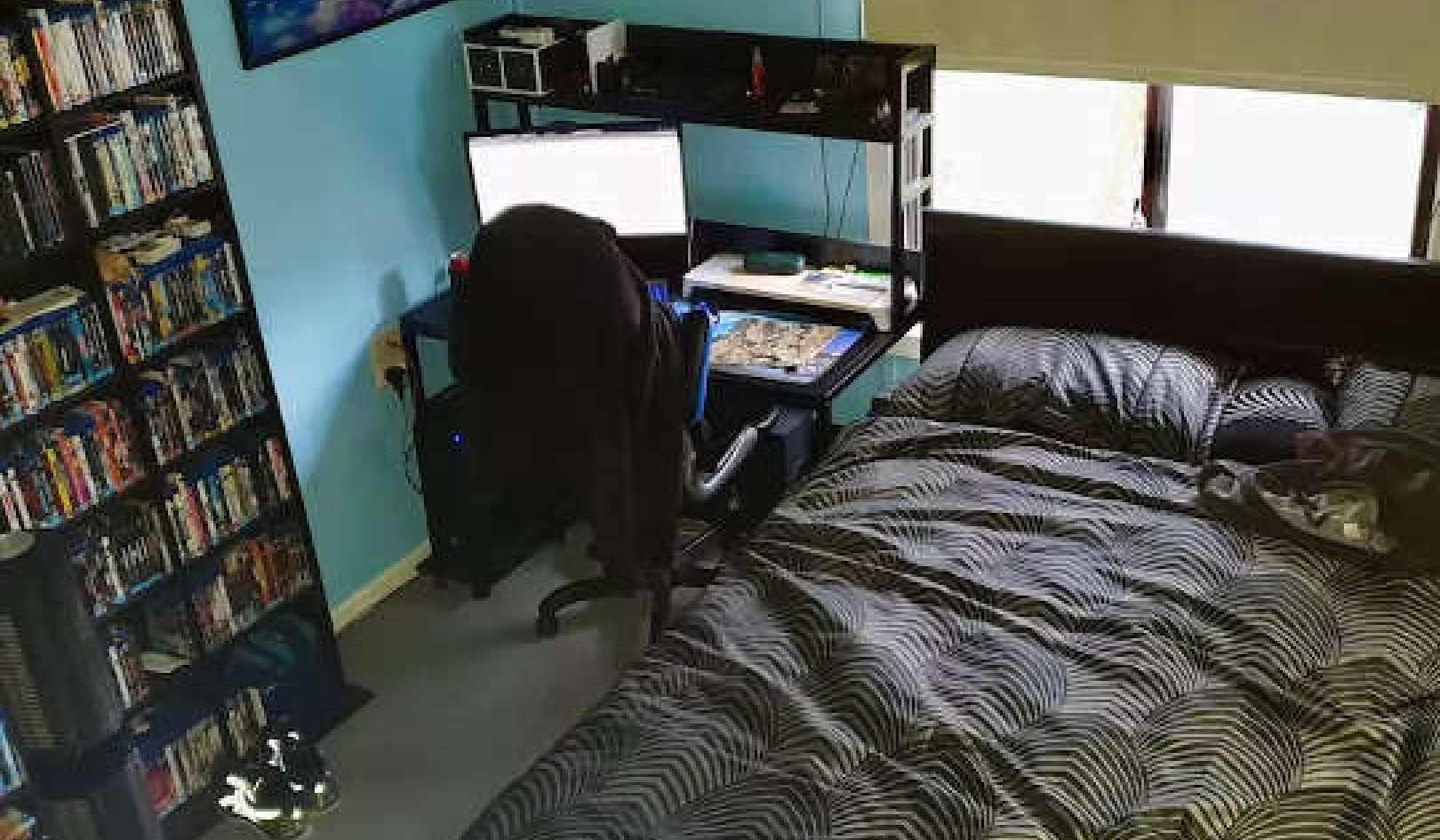
Image by Yogendra Singh
How many times have you been hurt by what someone said about you? How many times have you doubted your self-worth because someone criticized you, either to your face or 'behind your back'?
Why do we react with such self-doubt or indignation when someone criticizes us, or says negative things about us?
I believe that our reaction reflects our negative and limiting beliefs about ourselves. If someone said something 'bad' about you and you knew completely within every cell of your body that it was untrue, it would not bother you. You would simply shrug it off and it would roll off of you like water on a duck's back. The reason criticism upsets us is that we also, somehow, somewhere, deep within us believe it to be true -- or at least we wonder if it might be true.
Now your mind (ego) may rebel at this thought. Of course you don't believe such nasty things about yourself. But think back... How many times have you called yourself names when you made a mistake? Do you recall telling yourself how stupid you were? I know that on occasion when I have made an error, I have heard myself muttering to myself, 'You're such a idiot!'
The Other Person's Opinion Does Not Matter
So when someone says something 'negative' about you, use the opportunity to eradicate the same (or similar) belief you have about yourself or others. The other person's opinion does not matter in itself. It may simply reflect whatever judgments and feelings they have about themselves. But that does not concern you. Your only concern need be with how their statement reflects sub-conscious beliefs you have about yourself.
What I feel we need to do when someone 'badmouths' us is to first look at our reactions. That is what matters here. Not what the person said, not why they said it, not what we can say in our defense. What is important is our reaction. Does it anger us? Does it hurt us?
If your reaction is one of anger or hurt, be aware that anger and hurt are the ego's way of defending itself. So ask yourself, "Where in my past have I heard this statement about myself? Where does this hurt come from? Who can this belief be traced back to? What belief do I carry that resonates with what this person has said about me? What belief has my subconscious accepted about me?"
Uprooting Old Deeply Hidden Beliefs About Yourself
Whatever negative statements someone makes about you may connect to some deeply hidden feelings of guilt that you have. Only you can uproot the beliefs you have formed and accepted throughout the years.
Ask yourself again and make a list: "What are the things, even the tiny things, in my past or present that I feel guilty about?" And then write whatever trivial thoughts come to mind.
Do not judge the thoughts that come up. Write them down even if you think they're stupid, silly, or inconsequential. It may be even some tiny thing like, "I took some candy from my friend when I was little and I pretended someone else stole them." That small action may have translated in your belief system into something like 'I am not trustworthy", "I am greedy", or "Friends can't be trusted".
In somewhat the same way, the thousands of commercials you have seen throughout the years of slim, sexy women (or men) may have translated into a belief that "I'm ugly if I'm not shaped like them." Life's experiences also form our beliefs. A divorce or relationship breaking up may have become a belief in being a failure and being undeserving of love.
What Beliefs Have You Accepted Based on Old Guilts?
 Once you have your list of guilts, big and small, ask yourself and write down what belief you have formed from each one. You may be surprised at the results. Be willing to be 100% honest with yourself. The purpose is to look at the beliefs that you have formed throughout the years so you can transform them.
Once you have your list of guilts, big and small, ask yourself and write down what belief you have formed from each one. You may be surprised at the results. Be willing to be 100% honest with yourself. The purpose is to look at the beliefs that you have formed throughout the years so you can transform them.
Once you have the list of negative beliefs you have formed, then write the most positive belief you can think of to replace or reprogram each limiting belief. Be willing to accept a new truth for yourself.
Then really reflect and meditate on these lists. Look deep within and dig out any other beliefs and programs that are supporting those negative statements. Many times, these beliefs were implanted by parents, teachers, or siblings. We blindly accepted them as the truth, since they came from someone older and 'wiser' than us. Yet, it is time to acknowledge the real truth about ourselves and reject any beliefs that deny our true nature as children of the Light.
There is no need to create situations of unworthiness and unhappiness for ourselves. We can take every challenging experience as an opportunity to look within ourselves and clear out old limiting beliefs. Whatever we see 'out there' in the world is a reflection of what is 'in there' within our mind.
If you see anger around you, ask yourself what you are angry about. If you see judgment and condemnation, look within and see how you also judge and condemn others (and yourself). It's not about the other person. It's about our own perspective and beliefs.
It's Weeding Time!
Dig deep, and you'll find those belittling beliefs and attitudes — then pull out the 'weeds'. You deserve to have a Garden of Eden within yourself and around you, not the weeds of judgment, disharmony, and self-condemnation. Love yourself and pull out the weeds, otherwise they may pop up at the most unexpected times and sabotage the most beautiful situations.
People often wonder why relationships start out so harmoniously and lovingly and then seem to sour as time goes by. A very simple explanation is that any relationship starts out with a clean slate. Then, as two people spend time with each other, each starts to become aware, consciously or subconsciously, of the other's 'weak points' and negative beliefs.
Any situation or belief that brings up low self-esteem and self-judgments in one partner will be felt by the other. After a time, the second person starts to believe these untruths as well. For example, the husband may feel he has a very wonderful wife. Yet, if she constantly is putting herself down for being sloppy, ugly, unlovable, etc., then eventually the mate also starts believing these things. Thus, the relationship starts deteriorating because of one person's self-evaluation and judgments.
The partner's attitude becomes a reflection of the self-hate and low self-esteem of the other. Beliefs become stronger when reflected in another's eyes, and thus the "new reality" becomes stronger and can therefore destroy the beauty and love that was there at the beginning.
So, here again, the key is to dig up the limiting beliefs and eradicate them. They are poisonous and can poison relationships, job situations, and life itself. Take matters in your own hands, and only accept and nurture those beliefs that support your perfect health and happiness.
©2007 by Marie T. Russell
Related Book:
Five Steps to Overcoming Fear and Self Doubt
by Wyatt Webb.
 Drawing from his 20-year career as a therapist, and his unique ability and willingness to examine his own fears and doubts, Wyatt Webb explores the process of fear, its many voices, and all the programming that causes humans to doubt themselves in the first place. Using his simple five-step process (Acknowledge the Fear, Quantify the Fear, Imagine the Worst-Case Scenario, Gather Information and Support, and Celebrate), you’ll learn how to walk through fear and self-doubt and arrive at that hoped-for place of freedom—the joy that is your birthright. This book shows how every one of your fears and self-doubts can be overcome.
Drawing from his 20-year career as a therapist, and his unique ability and willingness to examine his own fears and doubts, Wyatt Webb explores the process of fear, its many voices, and all the programming that causes humans to doubt themselves in the first place. Using his simple five-step process (Acknowledge the Fear, Quantify the Fear, Imagine the Worst-Case Scenario, Gather Information and Support, and Celebrate), you’ll learn how to walk through fear and self-doubt and arrive at that hoped-for place of freedom—the joy that is your birthright. This book shows how every one of your fears and self-doubts can be overcome.
For more info or to order this book. Also available as a Kindle edition.
About The Author
 Marie T. Russell is the founder of InnerSelf Magazine (founded 1985). She also produced and hosted a weekly South Florida radio broadcast, Inner Power, from 1992-1995 which focused on themes such as self-esteem, personal growth, and well-being. Her articles focus on transformation and reconnecting with our own inner source of joy and creativity.
Marie T. Russell is the founder of InnerSelf Magazine (founded 1985). She also produced and hosted a weekly South Florida radio broadcast, Inner Power, from 1992-1995 which focused on themes such as self-esteem, personal growth, and well-being. Her articles focus on transformation and reconnecting with our own inner source of joy and creativity.
Creative Commons 3.0: This article is licensed under a Creative Commons Attribution-Share Alike 4.0 License. Attribute the author: Marie T. Russell, InnerSelf.com. Link back to the article: This article originally appeared on InnerSelf.com




























